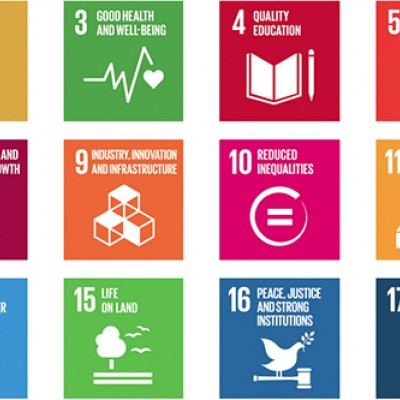
EU 2030 Agenda: what role for culture?
The 2030 Agenda for Sustainable Development (the 2030 Agenda), adopted by the United Nations in September 2015, represents a new framework to achieve sustainable development and poverty eradication. The core of the 2030 Agenda is the set of 17 Sustainable Development Goals (SDGs) and associated targets.
On 22 November the European Commission presented three documents explaining its strategic approach to achieving the SDGs in Europe and around the world. The first document does not mention culture at all, while references to culture in the two other papers do not fully embrace all the values with which culture contributes to sustainable development.
1) Communication on the Next steps for a sustainable European future provides a basic understanding of how the European Commission will implement the SDGs. The document does not mention culture not even once.
2) Proposal for a new European Consensus on Development puts forward a shared vision and framework for action for all EU Institutions and all Member States, focusing on the five key themes of the 2030 Agenda: people, planet, prosperity, peace and partnership. Culture is mentioned in the part on the priority of the EU and its Member States to ensure that "everyone has the knowledge, skills, capabilities and rights they need (…) to contribute to (…) the promotion of and access to culture". Furthermore, the EU and its Member States are committed to support universal human rights, whether civil, political, economic, social or cultural.
3) Staff Working Document Key European action supporting the 2030 Agenda and the SDG maps the most relevant EU existing actions related to the achievement of each of the 17 SDGs. The vision of the role and place of culture in achieving the SDGs is reflected in the following references:
- Goal 3 Ensure healthy lives and promote well-being for all at all ages highlights the promotion of social inclusion through improved access to social, cultural and recreational services.
- Listing the policies related to Goal 4 Ensure inclusive and equitable quality education, the document refers to the efforts of the EU and its Member States to promote the implementation of the UNESCO 2005 Convention on the Protection and Promotion of the Diversity of Cultural Expression across all its policies.
- The paper refers to the Creative Europe Programme as one of the EU funding instruments that helps to achieve Goal 8 Promote sustained, inclusive and sustainable economic growth, full and productive employment and decent work for all.
- In Goal 9 Build resilient infrastructure, promote inclusive and sustainable industrialization and foster innovation, the document mentions the EU support "for small cultural and creative enterprises to access financial services and integrate into value chains and markets" and mentions the Cultural and Creative Sector Guarantee Facility.
- The role of culture and particularly of the European cultural heritage is put forward in Goal 11 Make cities and human settlement inclusive, safe, resilient and sustainable.
- The document refers to the role of culture in achieving Goal 16 Peaceful and inclusive societies, rule of law, effective and capable institutions – but only in the EU external actions and not in its domestic policies. Finally, it is mentioned that "EU supports many partner countries working to improve their governance, taking account of political, economic, social, cultural and environmental dimensions".
Communication on the Next steps for a sustainable European future (19 pages)
Communication on a New European Consensus on Development (27 pages)
Key European action supporting the 2030 Agenda and the SDG (64 pages)

